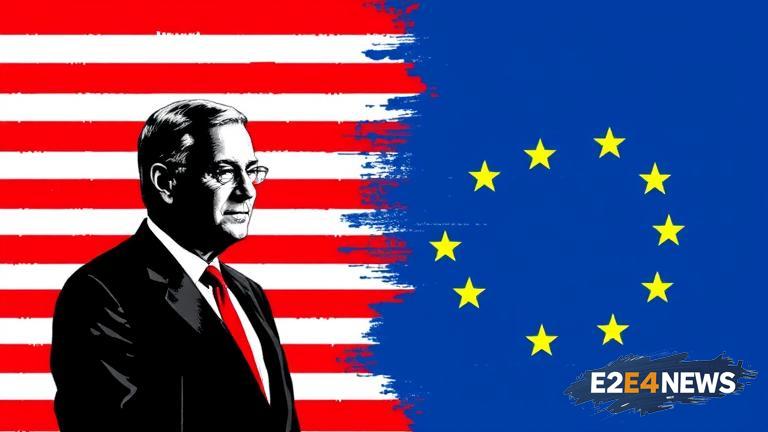The United States is contemplating sanctions on European Union officials in response to the EU’s Digital Services Act, a legislative package designed to regulate online platforms and hold them accountable for the content they host. The Digital Services Act, which was passed in July 2022, imposes strict regulations on large online platforms, requiring them to remove illegal content and provide more transparency into their algorithms. The US has expressed concerns that the law unfairly targets American tech companies, such as Google, Facebook, and Amazon, and could stifle innovation and free speech. The potential sanctions would be a significant escalation in the ongoing trade tensions between the US and EU. The US has been critical of the EU’s approach to regulating the digital economy, arguing that it is overly broad and could have unintended consequences. The EU, on the other hand, believes that the Digital Services Act is necessary to protect consumers and promote a safer online environment. The law has been hailed as a major victory for consumer rights and online safety, but it has also been criticized for its potential impact on free speech and innovation. The US has been pushing for a more nuanced approach to regulating online platforms, one that balances the need to protect consumers with the need to promote innovation and free speech. The EU, however, has been resistant to US pressure, arguing that its approach is necessary to address the unique challenges posed by the digital economy. The potential sanctions would likely target EU officials who have been instrumental in shaping the Digital Services Act, including European Commission President Ursula von der Leyen and Internal Market Commissioner Thierry Breton. The sanctions could take a variety of forms, including travel bans and asset freezes. The move would be a significant escalation in the ongoing trade tensions between the US and EU, and could have far-reaching consequences for the global economy. The US and EU have a long history of cooperating on trade and economic issues, but the Digital Services Act has created a major point of contention between the two sides. The US has been seeking to negotiate a resolution to the dispute, but so far, the EU has been unwilling to budge. The potential sanctions would likely be seen as a last resort, and could damage relations between the US and EU for years to come. The Digital Services Act is just one part of a broader effort by the EU to regulate the digital economy, and the US is concerned that it could set a precedent for other countries to follow. The law has been praised by consumer advocacy groups, who argue that it is necessary to protect consumers from the harmful effects of online platforms. However, it has also been criticized by free speech advocates, who argue that it could stifle innovation and limit the ability of online platforms to host a wide range of content. The US and EU have fundamentally different approaches to regulating the digital economy, and the Digital Services Act has highlighted these differences. The US has traditionally taken a more laissez-faire approach to regulating online platforms, while the EU has been more aggressive in its efforts to regulate the digital economy. The potential sanctions would likely be seen as a reflection of these deeper differences, and could have significant implications for the future of the digital economy. The US and EU will likely continue to negotiate over the Digital Services Act, but the potential sanctions have raised the stakes and created a sense of urgency around the issue. The outcome of the dispute is far from certain, and could have significant implications for the global economy and the future of the digital economy.
